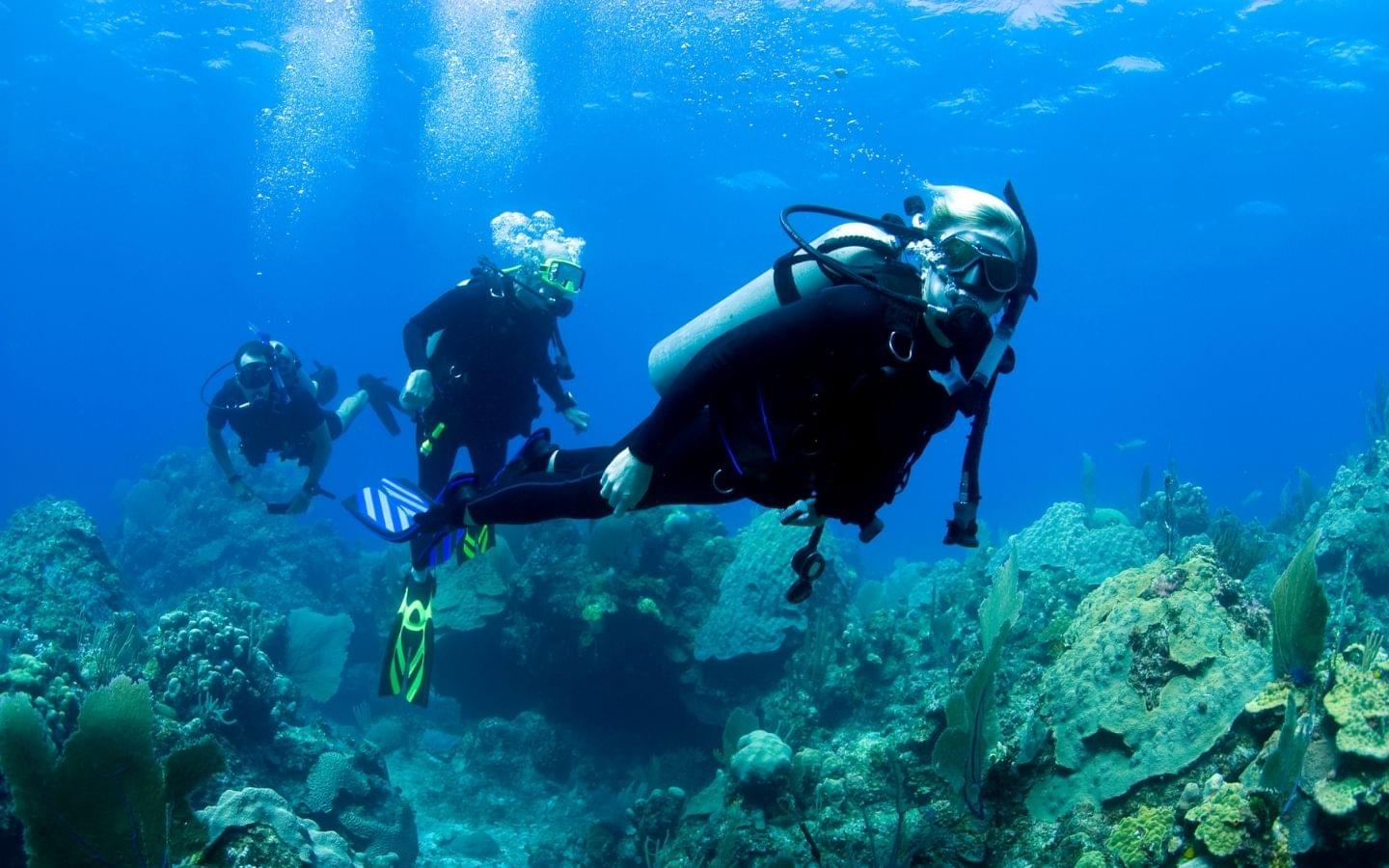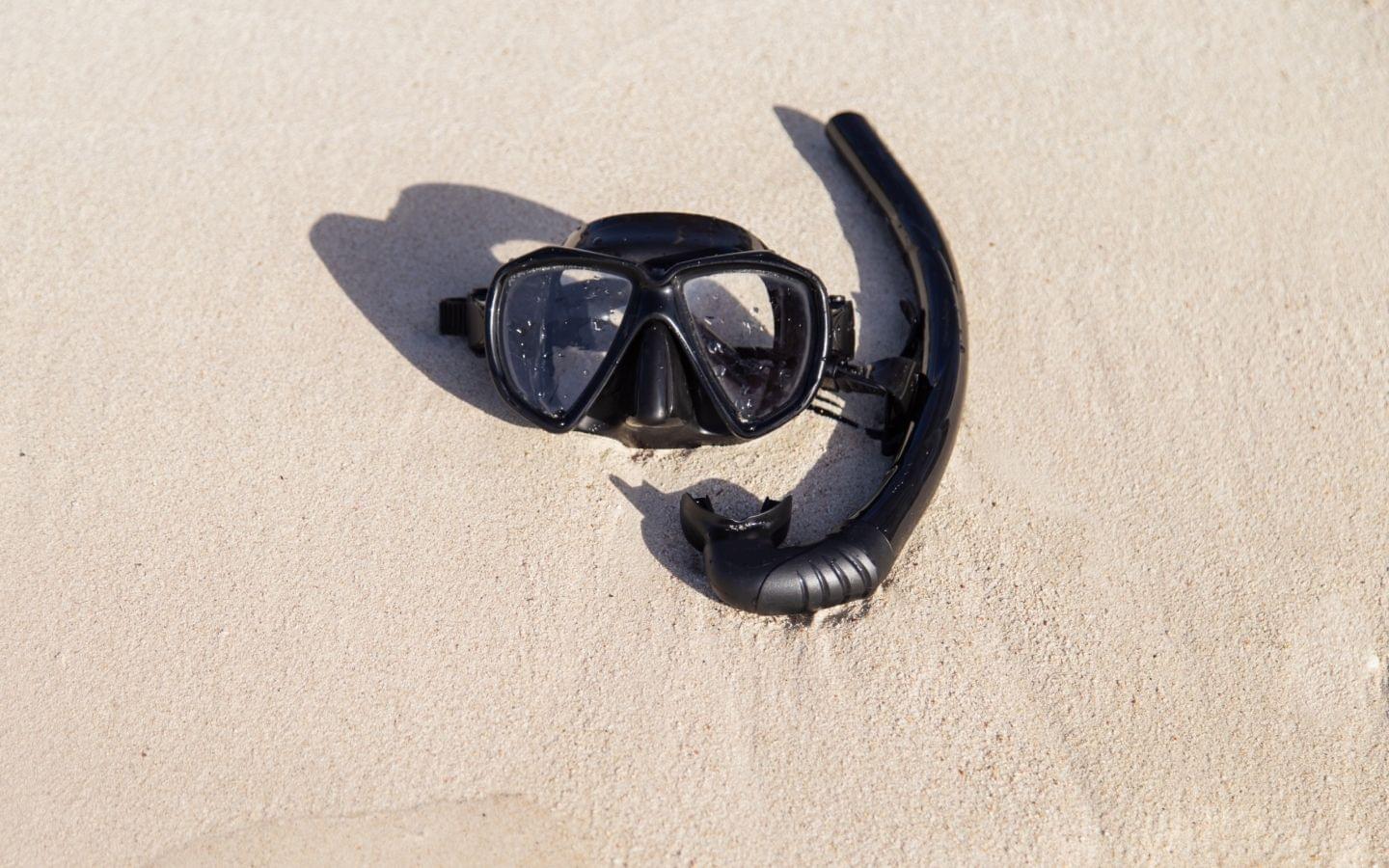Scuba diving with asthma: How to stay safe when you dive
When scuba diving you need to take all necessary precautions to stay safe and enjoy your dive. For asthmatics this requires extra steps to make sure they are clear to dive.
For a long time, doctors thought that asthmatics couldn’t dive at all. Scuba diving involves certain risks and these can be more serious for asthmatics. However, with more medical knowledge about treating and managing asthma, this view has changed.
Asthmatics can scuba dive, but first, they should discuss their limits and triggers with a diving doctor. Diving can trigger asthma in a few ways and cause pulmonary barotrauma and other serious health complications. Those with mild to moderate asthma who know their triggers should be able to dive.
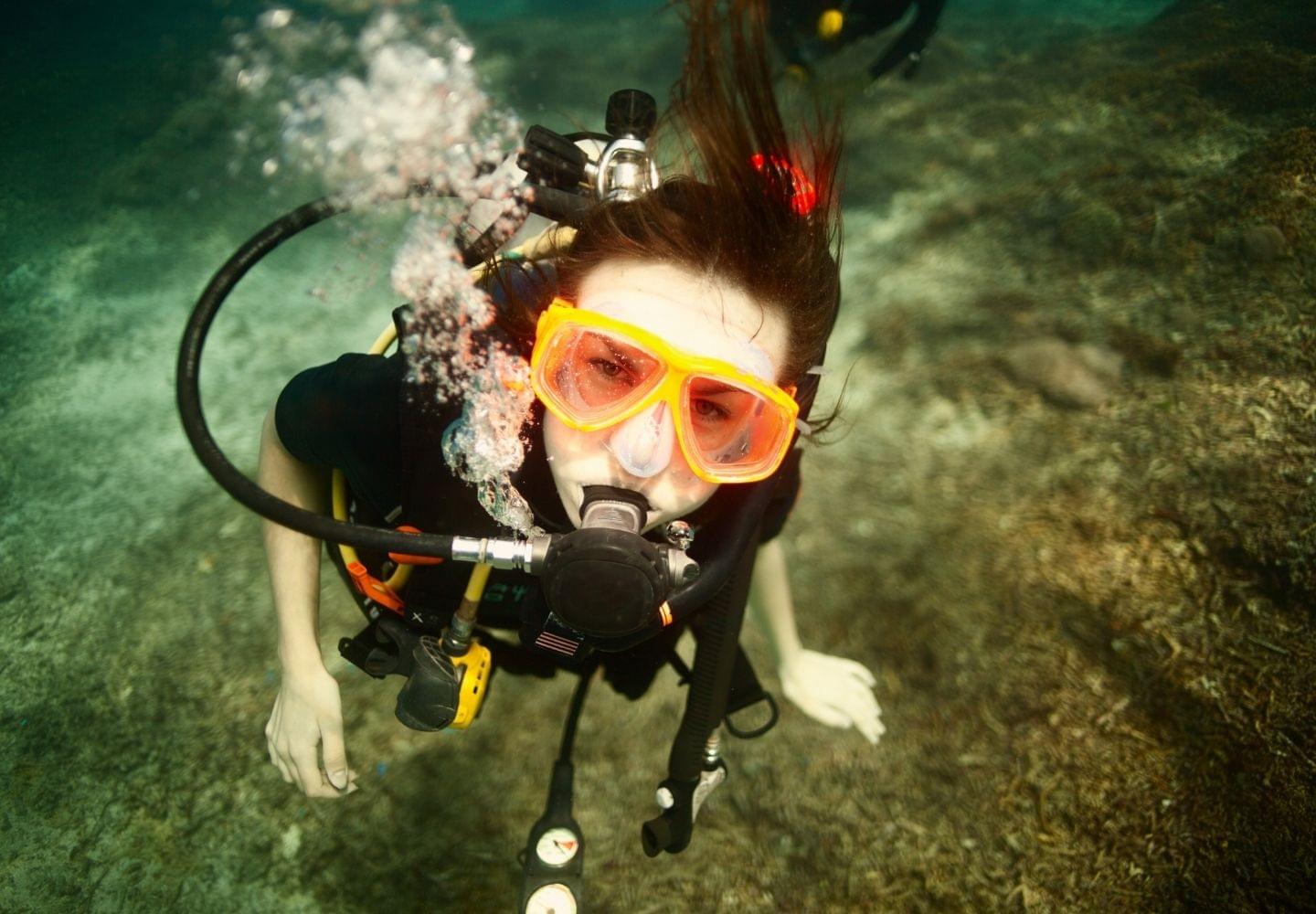
Why is diving dangerous for asthmatics?
Asthma creates inflammation in the lungs and various triggers will make this worse. When asthmatics come into contact with a trigger the lungs produce more mucus and constrict airways. When this happens air gets trapped in the lungs and reduces pulmonary function. The go-to treatment for this is the use of an inhaler. These are bronchodilators that relax the lungs so the air can escape, but are not available while diving 1.
If an asthmatic has a bronchospasm, before or during a dive, air can get trapped in their lungs. Then, as the diver ascends, the trapped air will expand as the water pressure decreases. The air can expand so much that the lung will rupture, causing a pulmonary barotrauma (PBT) 2.
From here, a diver could experience other health complications. One of the most severe being an arterial gas embolism, when air bubbles get into the bloodstream. Even shallow diving and small pressure changes can cause complications and PBT 3.
While these risks are serious and divers should take precautions, there are many who have mild to moderate asthma and don’t have any trouble diving. Real-world observations of asthmatic divers have shown very few complications during dives. This suggests there isn’t a significantly higher risk of PBT or decompression sickness for these divers 3. Because of this asthma doesn’t exclude people from recreational scuba like it used to.
As long as divers discuss the risks with their doctor and understand their asthma, many are able to dive without any issues 2.
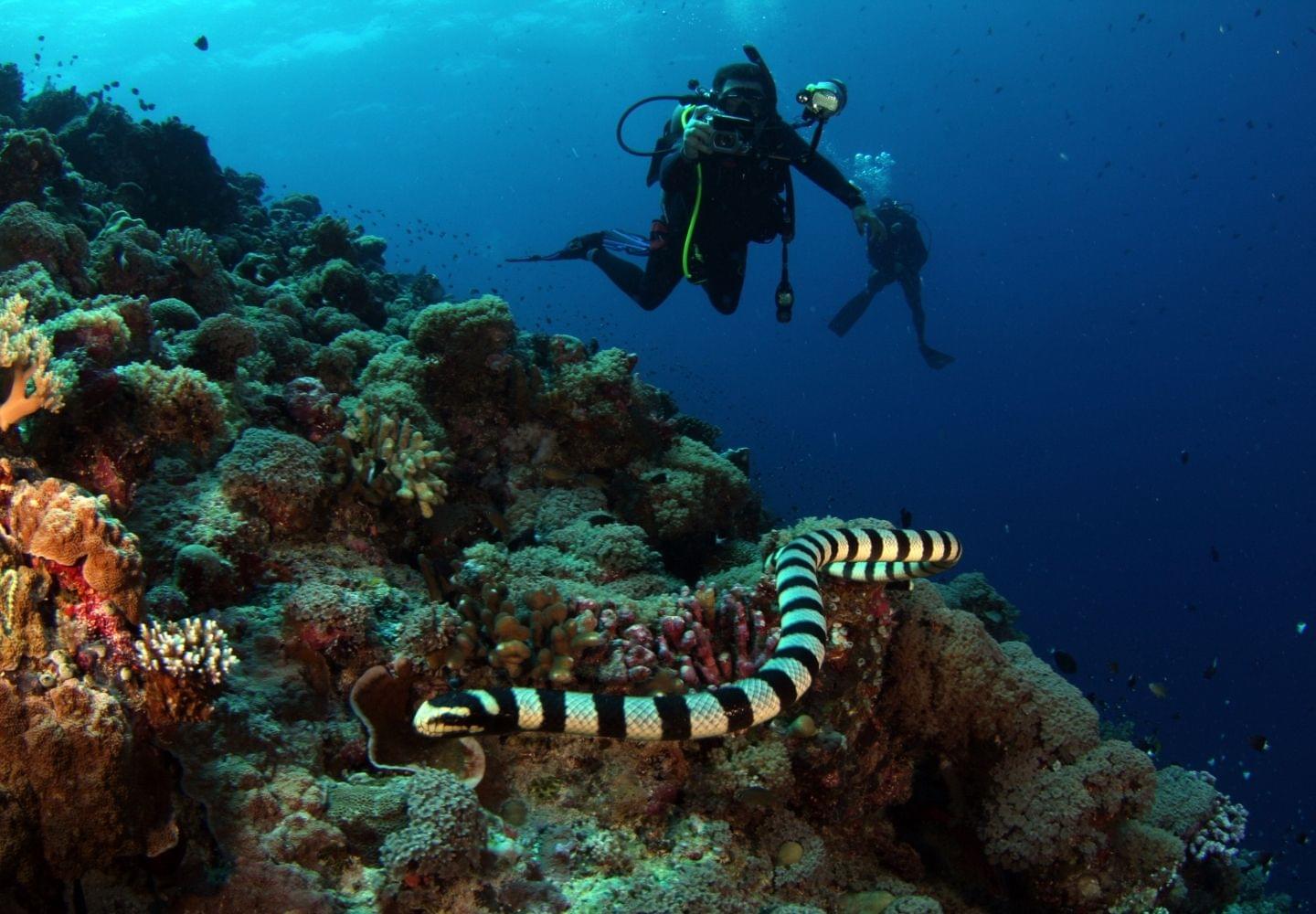
How does diving trigger asthma?
Asthma attacks and wheezing can be set off by a variety of factors. Because divers have a long exposure to cold air and seawater, asthmatics sensitive to these should avoid diving. Others with controlled and mild asthma can often continue like non-asthmatic divers.
Most common diving triggers:
- Cold, dry air in the scuba tanks. Gas in a scuba tank is dryer than normal air to prevent corrosion of the tanks and it becomes colder while diving. Studies of athletes in cold conditions have shown an increase in breathing spasms and asthma symptoms 2. The compressed air also requires more effort to inhale through a regulator making normal breathing difficult for some asthmatics.
- Physical exertion depending on the dive. Most dives are not very physical, but some locations with strong currents and open water swells will need more effort. Exercise is a common trigger for asthmatic patients 4.
- Spikes in adrenaline or anxiety. Even the most experienced scuba divers have had moments where they have been anxious or unsure under the water. If something on the dive doesn’t go as planned, a spike in adrenaline will cause irregular breathing and can trigger asthma 4.
If your asthma was ever caused by similar stimuli in the past, you will want to be cautious when you consider scuba diving.
There are additional allergens and irritants that are less likely on a dive. However, these can set off wheezing and breathing difficulties beforehand which create issues once underwater.
Additional triggers before a dive:
- If you are diving in a new location or during certain times of the year allergies will be more prevalent.
- Smoke and air pollution from your location can trigger asthma symptoms.
- Some medicines like aspirin can be triggers and you should avoid them before diving 4.
Asthmatic divers should be aware of their personal triggers and avoid dive locations that have a higher exposure. Plan your dives to include information on where you are diving and how it will affect you.
Don’t get overwhelmed when planning for your next dive. Read our full guide here.
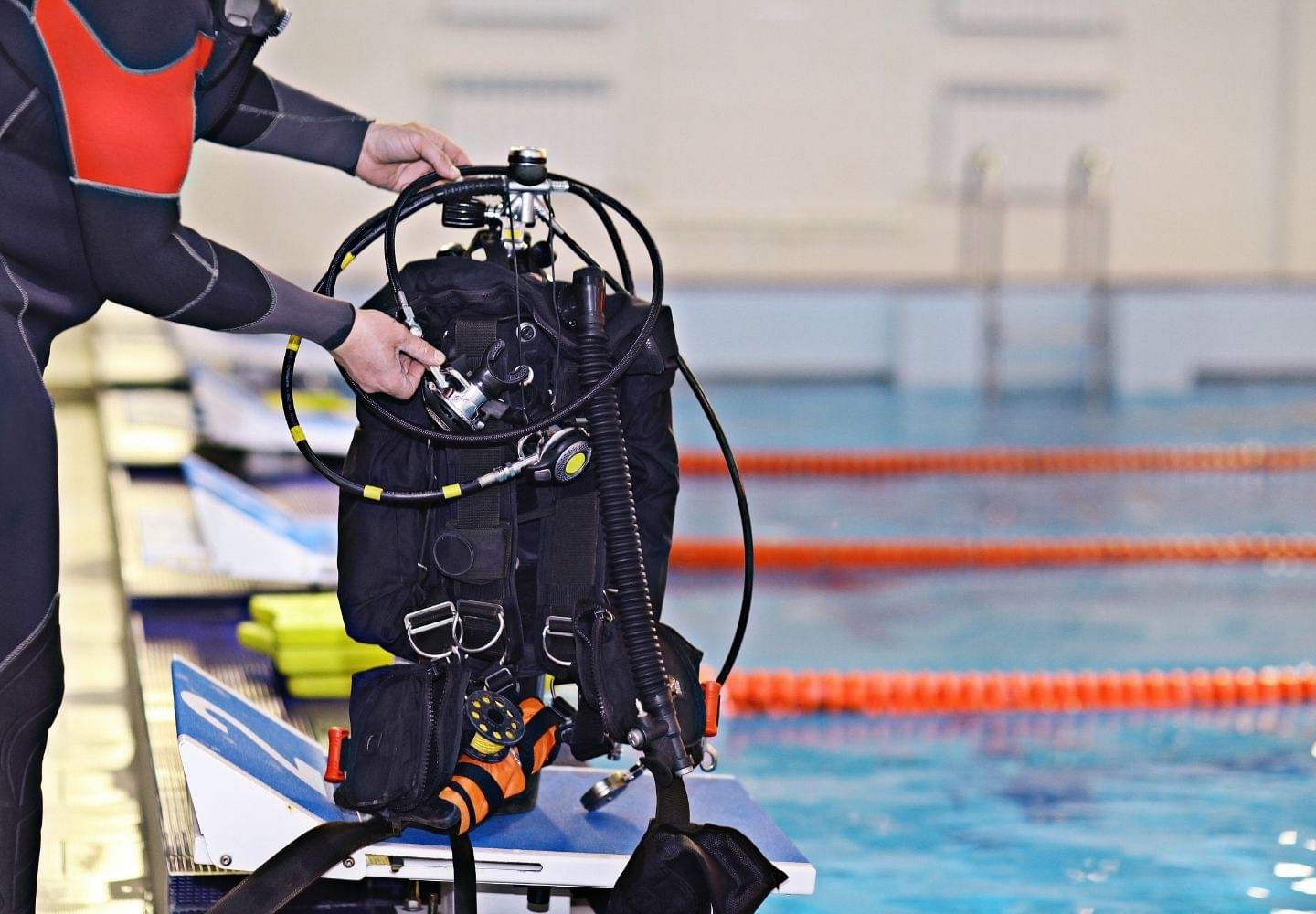
Doctors Approval
Before taking a dive course, you will need to fill out a medical release. If you have asthma you will need to show that you have a doctor’s approval for the course to continue.
You should never lie on these forms to make it easier to dive. If any emergencies occur it will be more difficult for the dive instructor to get you the help you need if they don’t know your conditions. If you have dive insurance lying will also cancel out their coverage.
Find out more about what dive insurance covers and pick the best plan for you in our article here.
See a doctor specialized in diving medicine before picking your dive course to save yourself time. They will clear you for diving by evaluating your specific contraindications. Clearance is on a case-by-case basis depending on your triggers and how often you have asthma symptoms. Some conservative doctors recommend you not dive if there have been any asthma symptoms in the last five years 2.
There are also tests they can run to determine your personal risk.
Spirometry is one of the most common tests. By inhaling and exhaling doctors measure fev1 and fvc, the amount of air a person can exhale in one second. This test diagnoses asthma and its severity. Those with mild to moderate asthma are often considered safe to dive 3.
Another test is Peak Flow (PF). This test measures how open your airways are by how fast your expiratory flow is. People with asthma will show variations in the results. Your doctor will decide if the variations are at a dangerous level or not. Generally, you should complete this test in the days before you dive to monitor if your airflow drops 1.
Some doctors recommend you complete a stress test or exercise test. These will measure your reaction to physical exertion, sometimes while breathing through an oxygen tank. From this, your doctor can better decide if scuba diving will be a trigger for you 1.
Tips for diving with asthma
Before you dive, avoid smoking and exercise more to help lessen your asthma symptoms. Smoking makes asthma worse and hurts your lung function. While exercising more will strengthen your lungs and reduce symptoms caused by weight 5. These tips are helpful for all divers to be safer and control their breathing better underwater.
As you get ready to dive, you should take extra precautions in the days before to avoid triggers and manage your asthma. The UK Diving Medical Committee recommends you do the following 6:
- Do a PF test twice a day for three days leading to your dive. Your results should be normal 48 hours before diving.
- Don’t dive if you had to use a reliever inhaler within 48 hours.
- Don’t dive if you have any asthma symptoms or difficulty breathing beforehand.
- Ascend slowly and within your dive computer’s limits.
- Consider using asthma medication, such as a reliever inhaler half an hour before a dive.
If there are any changes in your asthma leading up to a dive you should revisit your doctor to make sure you are still safe to continue.
Additionally, the Divers Alert Network (DAN) recommends you alert your divemaster and dive buddy of your condition. Even if you are not taking a course, you should make others aware of your asthma each time you dive. In the case of an emergency or unexpected situation, they can work with you to surface safely.
Conclusion
Asthmatics have an increased risk of PBT and complications while diving. However, those with mild to moderate symptoms are still considered safe to dive if they take the right precautions. Scuba divers should assess their limits with their doctor and decide if diving is safe for them. Divers should know their asthma triggers and avoid them before a dive to stay safe and relaxed.
References
-
Can I dive with ASTHMA?. DDRC Healthcare. Retrieved April , 2021. ↩ ↩2 ↩3
-
K. Teztlaff, C. Muth, L. Waldhauser, ‘A Review of Asthma and Scuba Diving’ , 39 ( 7 ): Journal of Asthma 2002 ; 557 - 566; ↩ ↩2 ↩3 ↩4
-
Y. Adir, A. Bove, ‘Can asthmatic subjects dive?’ , 25 ( 140 ): European Respiratory Review 2016 ; 214 - 220; https://err.ersjournals.com/content/25/140/214 ↩ ↩2 ↩3
-
(2019).What Causes or Triggers Asthma?. Asthma and Allergy Foundation of America. Retrieved April, 2021, https://www.aafa.org/asthma-triggers-causes/ ↩ ↩2 ↩3
-
(May, 2015). 7 Tips to keep your asthma under control. Breathe the Lung Association. Retrieved April , 2021 from ↩
-
Asthma. UK Diving Medical Committee. Retrieved April, 2021 from http://www.ukdmc.org/medical-conditions/asthma/ ↩
Last updated 25 June 2021
